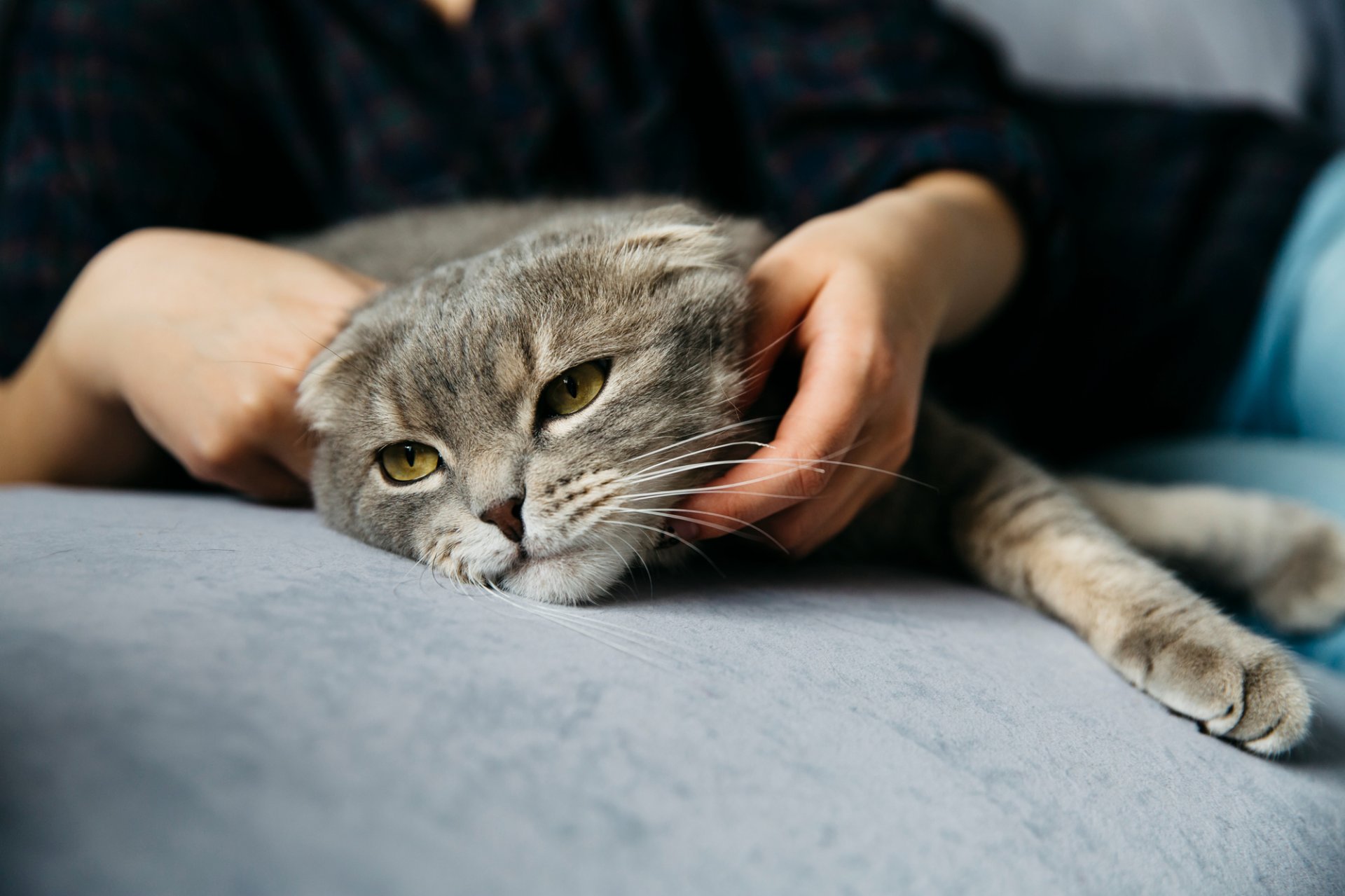Common Cat Diseases Every Owner Should Know

Cats are excellent at hiding their pain. Many illnesses progress silently until symptoms become severe that's why understanding common cat diseases is crucial for early detection.
Here are the most common illnesses in cats, along with symptoms and prevention tips, curated by U.LEK.
FLUTD — Feline Urinary Tract Disease
Symptoms:
- Dribbling or unusually frequent urination
- Frequent licking of the genitals
- Painful urination that causes cries
- Blood in the urine
️*No urination for 24 hours is an emergency.
Prevention:
- Encourage water intake (cat water fountain)
- Feed urinary-health food
- Keep the litter box clean
Upper Respiratory Infection (Cat Flu)
It is a group of upper respiratory infections, such as herpesviruses and caliciviruses.
Symptoms:
- Runny nose
- Frequent sneezing
- Watery eyes
- Lethargy and loss of appetite
Prevention:
- Vaccination
- Isolate sick cats from others
- Keep cats warm
Feline Hemotropic Mycoplasmosis
Often caused by fleas, ticks, or cat bites.
Symptoms:
- Lethargy, paleness, white gums
- Anorexia
- Weight loss
- High fever
Prevention:
- Regularly treat fleas and ticks
- Keep indoors to reduce the risk of bites
- Annual blood tests
Skin Problems
This is a common disease in dogs, and can be caused by ticks, fleas, fungus, allergies, or ear mites.
Symptoms:
- Intense itching, persistent scratching
- Red, scaly patches, dermatitis
- Patchy hair loss
- Strong, unusual body odor
Prevention:
- Bathe with a gentle cat shampoo.
- Use flea and tick medication.
- Clean bedding and carpets.
Feline Obesity
Most cats are big eaters and sleep a lot, making them prone to obesity.
Symptoms:
- Fatty buildup around the abdomen
- Easily tired and lazy
- Poor jumping ability
Prevention:
- Control food intake
- Reduce treats and provide exercise toys
- Regular playtimes and alternate stimulating toys
Chronic Kidney Disease
Common in older cats but can occur at any age.
Symptoms:
- Excessive drinking
- Frequent urination
- Weight loss
- Bad breath
Prevention:
- Encourage drinking water (water fountain helps)
- Yearly blood/kidney check-ups
- Feed a balanced diet or kidney-support food as advised
- Avoid salty or human food
General Prevention Tips
Maintaining cleanliness and taking responsibility for disease prevention are important, such as:
- Washing the cat bowl daily
- Scooping the litter box every morning and evening
- Monitoring the cat daily before rushing to the veterinarian
- Keeping up with vaccinations
- Choosing a nutritious, well-balanced diet
U.LEK's Recommendation
Proper nutrition builds a strong immune system. U.LEK supports cat health through premium-quality natural ingredients, grains, dried fruits, flowers, plant proteins, and essential vitamins.
"A healthy cat begins with mindful care every single day."
Here are the most common illnesses in cats, along with symptoms and prevention tips, curated by U.LEK.
FLUTD — Feline Urinary Tract Disease
Symptoms:
- Dribbling or unusually frequent urination
- Frequent licking of the genitals
- Painful urination that causes cries
- Blood in the urine
️*No urination for 24 hours is an emergency.
Prevention:
- Encourage water intake (cat water fountain)
- Feed urinary-health food
- Keep the litter box clean
Upper Respiratory Infection (Cat Flu)
It is a group of upper respiratory infections, such as herpesviruses and caliciviruses.
Symptoms:
- Runny nose
- Frequent sneezing
- Watery eyes
- Lethargy and loss of appetite
Prevention:
- Vaccination
- Isolate sick cats from others
- Keep cats warm
Feline Hemotropic Mycoplasmosis
Often caused by fleas, ticks, or cat bites.
Symptoms:
- Lethargy, paleness, white gums
- Anorexia
- Weight loss
- High fever
Prevention:
- Regularly treat fleas and ticks
- Keep indoors to reduce the risk of bites
- Annual blood tests
Skin Problems
This is a common disease in dogs, and can be caused by ticks, fleas, fungus, allergies, or ear mites.
Symptoms:
- Intense itching, persistent scratching
- Red, scaly patches, dermatitis
- Patchy hair loss
- Strong, unusual body odor
Prevention:
- Bathe with a gentle cat shampoo.
- Use flea and tick medication.
- Clean bedding and carpets.
Feline Obesity
Most cats are big eaters and sleep a lot, making them prone to obesity.
Symptoms:
- Fatty buildup around the abdomen
- Easily tired and lazy
- Poor jumping ability
Prevention:
- Control food intake
- Reduce treats and provide exercise toys
- Regular playtimes and alternate stimulating toys
Chronic Kidney Disease
Common in older cats but can occur at any age.
Symptoms:
- Excessive drinking
- Frequent urination
- Weight loss
- Bad breath
Prevention:
- Encourage drinking water (water fountain helps)
- Yearly blood/kidney check-ups
- Feed a balanced diet or kidney-support food as advised
- Avoid salty or human food
General Prevention Tips
Maintaining cleanliness and taking responsibility for disease prevention are important, such as:
- Washing the cat bowl daily
- Scooping the litter box every morning and evening
- Monitoring the cat daily before rushing to the veterinarian
- Keeping up with vaccinations
- Choosing a nutritious, well-balanced diet
U.LEK's Recommendation
Proper nutrition builds a strong immune system. U.LEK supports cat health through premium-quality natural ingredients, grains, dried fruits, flowers, plant proteins, and essential vitamins.
"A healthy cat begins with mindful care every single day."
Related Content
17 มี.ค. 2025
7 ก.ค. 2025
17 มี.ค. 2025


